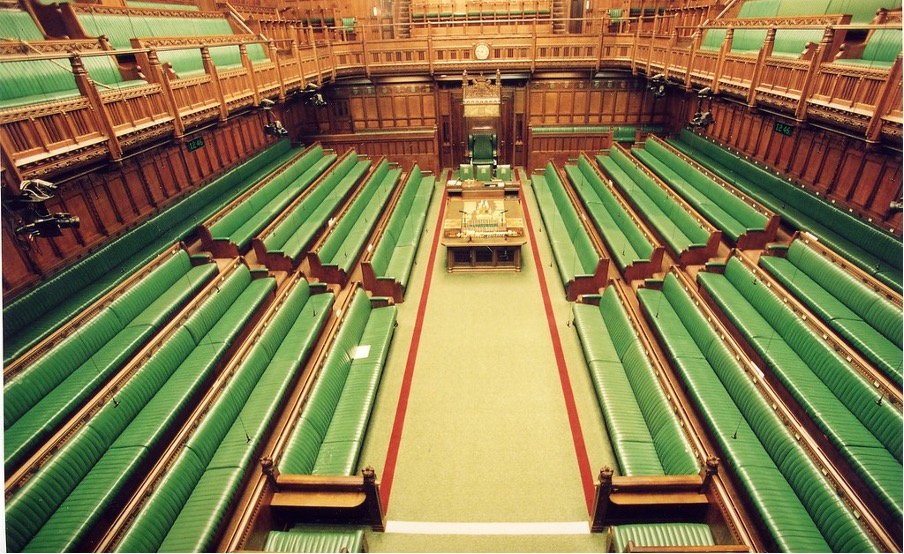
The defection of Christian Wakeford MP is not a symptom of the current Conservative failures, but rather a consequence of recent Labour successes. Notwithstanding the Brexit wars of the 2017-2019 parliamentary session, MPs crossing the floor is a very rare sight. The last time a sitting member switched between Labour and the Conservatives was fifteen years ago when Quentin Davies — in awe of new prime minister Gordon Brown — joined his adversaries. The Blair years too saw plenty of Tories abandon their home in favour of an amiable Labour Party. Interestingly, the opposite has not occurred since 1977 — despite two brief flirtations with radicalism.
The willingness to leave one’s party can be attributed to failures of the party’s leadership, yet for defection to occur one requires a new alluring home. This is why, from 2016 onwards, many Tory and Labour MPs abandoned their respective parties to become independents or groups of independents — because other parties were too repulsive. The most prominent of these was the spectacularly unsuccessful Change UK party, later renamed the Independent Group for Change due to copyright reasons. It comprised of deserters from both parties and was thought at the time to be a new force in British Politics, one that would unify liberal Remainers and lead the fight to overturn Brexit. Soon enough though, both the Local and European elections wiped the party into political oblivion and the rats began to abandon the sinking ship. At the same time in the summer of 2019, Conservatives were getting their house in order by replacing May with Johnson to ruthlessly quieten the few remaining Remainers.
What the May elections proved, however, was that the Liberal Democrats were establishing themselves as a serious party — for the first time in nine years. Sir Vince Cable cleverly harnessed the anti-Brexit sentiment to his party’s advantage and — before he knew it — he was attracting defectors left, right and centre. The most dramatic of these was undeniably Dr Philip Lee, who crossed the floor and thereby denied the Conservative minority government a working majority even with the support of the DUP. Despite these defections, there were still many parliamentarians who refused to leave their party because they saw no credible alternative. Many ardent Remainers were willing to shout about the failings of their party leadership but were adamant not to desert nevertheless — such as the likes of Ben Bradshaw, Kenneth Clarke, Dominic Grieve and Stella Creasy.
The question is, what has Labour done to become more attractive to Tory MPs? Sir Keir Starmer has fixed many of his predecessor’s faults since coming to office two years ago. The most recent example is to do with defence and national security, when he unequivocally committed the Labour party to the NATO alliance and to standing up to Russian aggression. This is in stark contrast to Corbyn, whose credentials on defence matters were weak — especially following the Salisbury poisonings. Another area which Labour has improved on is the economy. The shadow Chancellor Rachael Reeves is well-respected by the business community as a trustworthy pair of hands and someone willing to exercise fiscal restraint — something that was crucial to New Labour’s success. These resolved points of toxicity have created the opportunity for Conservative MPs to contemplate life on the other side.
There will be cynics who attribute Wakeford’s defection to personal ambition, yet if this is true — which I do not believe it to be — it only proves that Labour values are those that are enticing his constituents. This interpretation of Wakeford’s decision can still be read as proof of an opposition party gaining in strength. The decision to defect was long planned and well thought out, which is why the Constituency Labour Party in Bury South welcomed him with open arms. Like Quentin Davies fifteen years before him, Wakeford was not only dissatisfied with the policies and leadership of the Conservative Party under Boris Johnson, but admired and respected the policies and leadership of the Labour Party under Sir Keir Starmer.
Featured Image: ‘House of Commons Chamber – elevated view‘ by UK Parliament from Flickr is licensed under CC BY-NC-ND 4.0 (link to license deed).



Average Rating